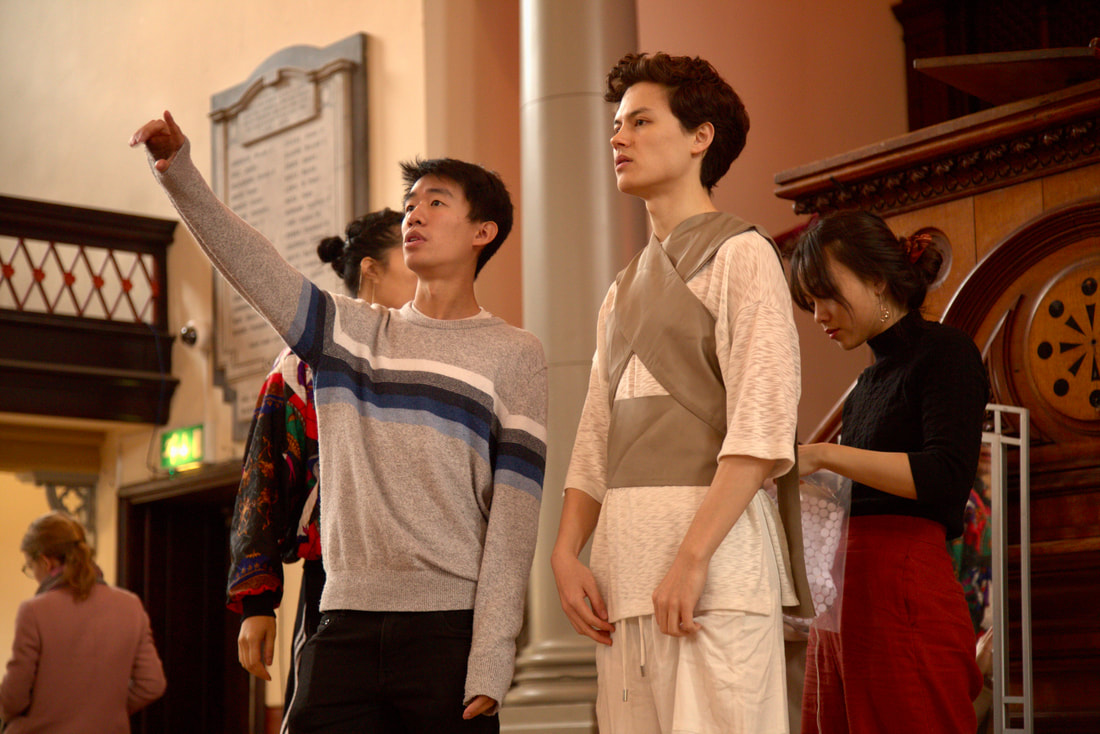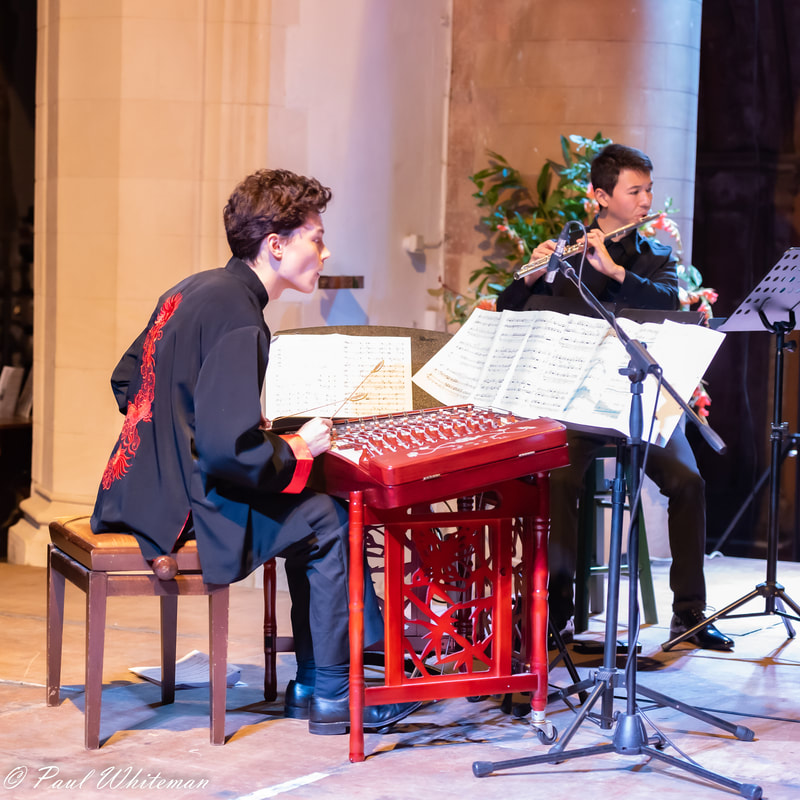by Daniel ShaoEarlier, I spoke with Alex & Reylon, founders of Tangram, about creating a state of questioning with our project and opening up spaces between the East and West. In this second conversation, I began by asking about who are audiences are: are we imagining a Chinese or Western audience, or neither? Alex: It is less about where are audiences are from and more about their engagement with our mission: catalysing transnational imagination and celebrating the vitality of Chinese cultures. The idea of opening up a space you mention means we want to communicate new ideas of what Chinese identities and cultures encompass. We want our audiences to undertake a journey with us no matter where they start. This also applies to who we work with. We want to work with lots of people from different backgrounds and engage them in our mission as much as our audiences. This includes working with non-Chinese players and composers who may not have much experience in musical cross-cultural exchange to this extent but who are interested and genuinely excited by what we do and how we do it. Our upcoming commissions (to be announced soon!) reflect this and we can’t wait to see how they interact with and develop our work in creative ways. To me, that makes sense in terms of getting our message to as wide an audience as possible, and avoiding any sense of alienation. I’ve found that when discussing new political angles to do with race and culture, people respond better to a positive and approachable tone. That being said, does drafting people in to our message of positivity make us activists? Do we have to draw the line and say we are not an activist group, or is our explicitly Chinese music-making inherently political, and can our practice play a part in the cultivation of anti-racism? Reylon: The anti-racist drive is part of the DNA of what we do, but I hesitate to call it activism because there are many people on the ground doing hard work like getting legislation passed, having difficult conversations etc. I don’t want us to sound like we’re claiming to do that. But, we are using our medium in a special way where we’re embracing the social aspects, getting the audience to ask questions, and prompting reflection on what it means to be Chinese / British / American etc. We want to challenge what constitutes contemporary music, and get people to think beyond definitive categories. For me, if there’s one statement I want to advocate for through Tangram, it is that China and the West are not mutually exclusive, because this assumption is at the heart of a lot of geopolitical conflicts that we’re seeing, with the contest between China and the US as global superpowers. If that tension continues to grow unchecked, without genuine cultural exchange, without human-to-human communication channels, we are going to see very drastic consequences in terms of fraught public perceptions, trickling up into foreign policy decisions made by our leaders, which can lead to sustained antagonism. What I hope is that we can become a symbol for people of the truth that it is not as simple as us vs. them, and there is so much overlap. The lives of transnational Chinese people is a testament to the fact that there is a future that is much more peaceful, interconnected, and alive. So we definitely feel an idea of a utopian ‘call to imagination’, where we are trying to get people to think past destructive, racist, repetitive cultural narratives, that do have dire consequences, so we can imagine a more constructive future, that’s embedded in what we’re doing. In terms of anti-racism, a key point we want to emphasise is that music is an alternative language for communicating across cultural barriers, and we are leaning into that property of music. We said before in our mission statement that we are using the emotional languages of music to imagine alternative relationships between China and the West. It’s great that as an ensemble, we can do more than just make music; we think very critically about ourselves as artists, as well as the sources, effects, and potential resonances that our audiences might feel. This is maybe what sets us apart from other ensembles, who might be more concerned with just how they sound musically, aesthetically. We have been, and will continue to be, a socially engaged music movement. This got me thinking about the nature of apoliticism in music, particularly in light of recent public dialogues around race concerning the idea of existing with a supposedly apolitical status as a privilege, which some groups are not afforded the luxury of. Reylon’s phrase ‘call to imagination’ really gave me life and joy, offering vibrant possibilities of futurism, and a world where preconceived barriers are less present. That being said, we have to be aware of the barriers in the first place to challenge them at all.
Lastly, we discussed some of Tangram’s plans for the future! Alex and Reylon: We are excited to continue expanding our commissioning project and perform concerts at different venues in and around London and the UK, hopefully working towards a CD. We are also looking at developing our stage project Ye Xian into a more substantial piece, and have more exciting digital offerings coming up! We are also open to more commissions and collaborations with composers, or any artists who resonate with our mission. Please get in touch!
0 Comments
|
Authors:A range of Tangram artists and collaborators. We aim to present interviews, reflections, and tidbits on existence in the global Chinese diaspora. Archives
August 2020
Categories
All
|
Proudly powered by Weebly



 RSS Feed
RSS Feed